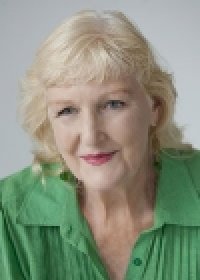Judith Armstrong

Judith Armstrong’s most recent book, War & Peace and Sonya, has just been republished in London by the Unicorn Press.
It is genuinely hard for countries like Australia, which have never regarded a powerful and alternative intelligentsia as particularly crucial, to appreciate either the role such an entity famously played in Russia or what a homegrown one might offer.
In 1955 Boris Pasternak, son of a pianist mother and artist father, announced ‘the dearest and most important themes’ of his new novel Dr Zhiva ... (read more)
Devotees of the television program Spooks may find Australian history less than exciting, but the Petrov Affair is surely the exception that confounds the cliché. Its ingredients included the Cold War, espionage, agents, a defection (hugely important propaganda for the Menzies government on the eve of the 1954 federal election) and a charming woman, the defector’s wife, who was unceremoniously ... (read more)
The Russian theorist Yuri Lotman said: ‘Plot is a way of understanding the world.’ On this basis, texts with plots – novels, for example – do more for us than texts without plots. The telephone book, for example, a plotless text par excellence, may promote aspects of communication, but adds little to our attempt to make sense of life. However, Igor Gelbach, a Georgian Russian now living in ... (read more)
Poisonous, profiteering physiotherapist Sue Mindberry is making a packet by charging seven gullible, fifty plus women $1000 per head for thirteen three-hour sessions of hydrotherapy. They are variously brain-damaged, hugely obese, psychically astray and arthritic. Sue Gough believes with Germaine that even such as these do not deserve the invisibility that age is supposed to confer. She gives them ... (read more)
It is surprising how many people seem to think that reviewers read only the first and last chapters of books to which they will devote several hundred words of critique. They look sceptical when informed that critics read every word of, and often go beyond, the featured book, searching out earlier works by the same author or books on the same subject by other writers. Thea Welsh being previously u ... (read more)
This book is full of sadly ironic observations, such as: Most adult sons have no memory of telling their mother to stop kissing them; decades later they are simply anguished and resentful that she has shown them no affection.
... (read more)
This volume of stories adds to the spate of books by or about Turgenev that have appeared recently yet it cannot be said to be redundant, as it provides an English version of five novellas not readily available in a collected form. Since the translator’s argument rests on the importance of the frequently neglected later part of Turgenev’s oeuvre (i.e. the shorter works appearing after the majo ... (read more)
While there are several biographies of Ivan Turgenev, and one or two specialised studies of his works available in English, there is only one comprehensive attempt at interpretation and criticism –Richard Freeborn’s Turgenev: The novelist’s novelist. The A.N.U. Press’s publication of Robert Dessaix’s doctoral dissertation is a valuable addition to a scanty field, especially as there is v ... (read more)
The trial of Lindy Chamberlain drew the fascinated attention of most Australians when it was reported day and night in every media outlet. It moved into a different but equally popular mode with the publication of John Bryson’s documentary novel Evil Angels and the screening of Fred Schepisi’s film of the same name. The novel not only won a clutch of awards but was translated into nine languag ... (read more)
